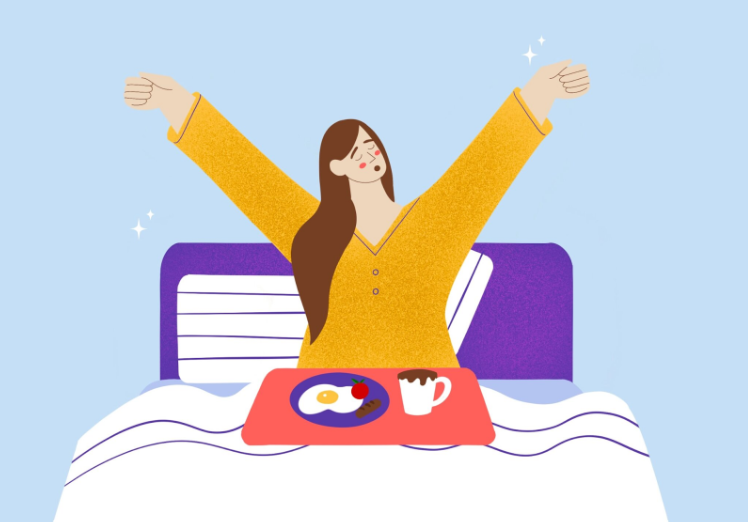Getting a proper amount of sleep is crucial to our overall health. Studies have shown that a lack of sleep can lead to several health issues, including sluggishness and burnout. Not only can inadequate sleep affect your appearance, but it can also affect your body in sneaky ways. Fortunately, a good night’s sleep can help you treat many health conditions. Here are some reasons why getting enough sleep is essential.
Inadequate sleep is linked to high blood pressure. Sleeping well helps the body regulate its blood pressure, which can lead to a variety of heart conditions. Sleep is also linked to emotional intelligence. Lack of sleep can affect your ability to recognize other people’s expressions and emotions. Researchers published in the Journal of Sleep Research found that people who lack sleep experienced a significant reduction in their emotional empathy. A lack of sleep affects the way we respond to others, and it can even worsen the effects of other health problems.
Although your body needs different amounts of sleep, most experts recommend that school-age children get seven to nine hours of quality sleep every night. Teenagers, on the other hand, need an additional hour to maintain healthy growth. Therefore, you should set a specific number of hours each night to achieve the desired amount of sleep. Even if you think you’re getting enough sleep, try to increase the amount of time you sleep. It’s crucial for your overall health.
Effecting Tips For Improving Your Sleep
Aside from your bedtime, your diet can affect the quality of your sleep. Avoid late-night TV, bright screens, caffeine, and alcohol, as they all interfere with restful sleep. The right diet includes plenty of water, dark chocolate, and protein. Avoid eating late at night. It’s not necessary to be a hermit to get a good night’s sleep faster.
Avoiding Late-Night Television
Studies show that as many as 30 percent of adults watch late-night TV, and their comfort is hard to resist. But, as Mick Jagger and Benjamin Franklin once famously remarked, old habits die hard. Watching late-night television does more than keeping us entertained. It can disturb our sleep cycle, mess with hormones, and contribute to mood disorders. So, it’s best to avoid watching late-night television to improve your sleep.
If you must watch television, choose a familiar show or turn it off completely. Turning off the television is the simplest sleep-protection measure and will ensure that it doesn’t keep you awake. Moreover, if you don’t sleep with the TV, you’re more likely to avoid binge-watching, which can also disrupt your sleep cycle. And, if you do watch late-night television, remember to turn off the volume before bedtime.

Avoiding Bright Screens Before Bedtime
According to research, using bright screens before bedtime can disrupt our sleep. Even one hour of computer time can disrupt our natural melatonin production, making it more difficult to wind down. The stress that we accumulate throughout the day is often amplified by technology use, and these activities are known to make our bodies react in an unhealthy way. Researchers believe that bright screens can delay our body clocks by as much as 1.5 hours.
The light coming from digital devices contains wavelengths in the range of 400 to 490 nanometers, which are harmful to our sleep. Fortunately, there are solutions. One simple way to reduce the amount of blue light you are exposed to is by wearing glasses that block this blue light. Brown or amber-tinted lenses can also help. Another option is to adjust the brightness of your device’s display, known as night mode. This reduces the background light to black and may even reduce the amount of blue light you’re exposed to. You can also download apps that filter the blue light without altering the display.
Avoiding Late-Night Meals
If you’re having trouble sleeping, consider avoiding late-night meals and snacks. While the timing of dinner may not be important, the food you eat before bed plays a role in how well you sleep. Late-night snacks and meals can disrupt the digestion process, keeping you awake. Here are three good reasons to skip the late-night meal. And remember, eating too much before bed can make you feel sick.
Good sleep hygiene is important when it comes to nutrition, so choose late-night snacks wisely. Avoid foods high in sugar, saturated fat, or spices. Also, avoid food items that irritate your heartburn. Ultimately, a healthy diet will help you sleep. Good sleep hygiene is all about setting the right environment for a healthy night’s rest. The best bedding, mattress, and pillow will help you get the restful sleep you need.
Avoiding Caffeine Before Bedtime
Although widespread recommendations caution against drinking caffeine before bedtime, no research has been conducted to examine its effects at different periods before sleep. With the prevalence of caffeine consumption and the need for empirical data, understanding the temporal effects of caffeine consumption is essential. In addition to its effect on sleep quality, caffeine consumption up to six hours before bedtime can disrupt sleep and affect objective and subjective measures. So, is caffeine consumption really necessary to promote better sleep?
The answer is yes, but not necessarily. Caffeine is a stimulant that affects sleep onset. If you drink it just before bedtime, you could experience a range of sleep disorders, including insomnia. Caffeine can also interfere with your sleep cycle, resulting in midnight urination. However, there are ways to avoid caffeine before bedtime for better sleep. Listed below are some tips to avoid caffeine before bedtime.
Lastly
A moderate to vigorous workout, done three hours before bedtime, can improve the quality of your sleep. Aerobic exercises such as brisk walking, jogging, swimming, cycling, and yoga can improve your sleep. The key is consistency. Exercise at least 30 minutes each day to see improvement. However, avoid intense workouts or physical activity too close to bedtime. If you are having trouble falling asleep, you might need to see a doctor.
Inside Contents

